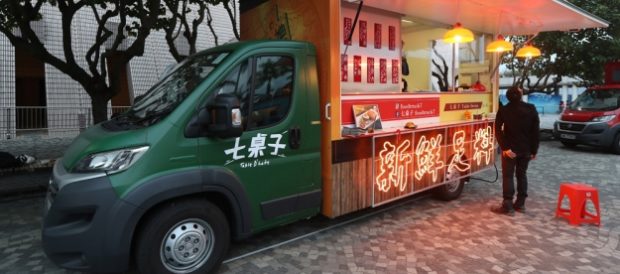Hong Kong’s descent into complacency
(Next Magazine, 2017/04/29, A002, Second Opinion, Bill Stacey)
Hong Kong’s descent into complacency
Some translations of the Old Testament book of Deuteronomy say that complacency leads to idolatry and brings destruction on the land. We are becoming complacent.
As the seasons turn, we move through the last of the spring festivals and more people get ill. The rhythm of the seasons heralds change, and in Hong Kong, the changes have often been harsh. We have pleasant, dry winters, but with spring, temperatures rise and we move toward summer’s stifling humidity and risks from violent typhoons. Living in Hong Kong has for long required an appetite for risk.
Complacency has not been an option. Protection from diseases requires an extra degree of cleanliness. Heat requires diligence in preparing food. The dramatic terrain and turbulent weather have required us to build with pathbreaking construction techniques that stretch human ingenuity. We have attracted risk takers from China and around the world, with a historic “touch base” policy that allowed those risking their lives to come here to make their fortunes.
This lack of complacency has also driven our prosperity. We have economically changed from a haven for the opium trade, to an entrepôt, a light manufacturing hub, then a service center for a modernizing China, and now a world-class financial center. Each of these phases of development has required adaptation and the development of new skills. Each has seen new individuals and companies rise to wealth and prominence. Our history is a history of incessant waves of Schumpeterian creative destruction.
However, as successive generations have mastered the risks of the physical environment, fear of the power of nature in typhoons has given way to frustration about occasional inconvenience and relish for an unofficial public holiday. The problems of intense heat and humidity have given way to niggling concerns about the cost of electricity to run air conditioners. Challenges of food and nutrition are supplanted by a plethora of choice from every corner of the planet. Lives are long and our worries are that we have a lowly rank on measures of happiness.
This challenge of “The Complacent Class” is captured in a book of that name by US economist Tyler Cowen. It could not be more relevant for Hong Kong.
There is a paradox that all our efforts to reduce risk might leave the economy more complacent, with less comfort taking the risks needed for success in a competitive world. In seeking to reduce risk, our planning processes become drawn-out. Projects become more expensive. Less is done to improve our built environment. Business licensing and approvals become more difficult. Employment and entrepreneurial opportunities dry up. We question the waste, messiness, and experimentation of private business, opting too often for the planned certainty of government projects.
The “food trucks” fiasco is a perfect example, lampooned in the New York Times, of all places, for onerous regulations that make them beautiful, clean, safe and uneconomic.
Recent MPF changes do little to enhance choice and nothing to increase returns, but they do offer a safer default – hardly an attractive alternative to managing your own money.
We condemn property developers as rich oligarchs, but tying them in knots creates a stultifying stasis. Rather, we should look to developers for more innovation, more improvements in buildings, and better space to live, work and for leisure. If they don’t deliver, we should have an opportunity to take a risk and do better ourselves. Innovations in small space living should help lower costs, but huge land premiums paid to the government and rules creating sameness deny that opportunity.
More public housing is a complacent answer that gives up on the idea that we should have a private economy that is dynamic enough to provide affordable housing for all who want it.
Less risk taking means less social mobility, less opportunity, less prosperity, and ironically in the long run, less prospect of stability.
Bill Stacey
Director
The Lion Rock Institute

